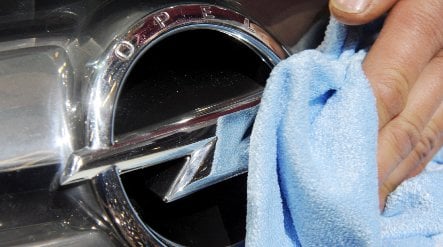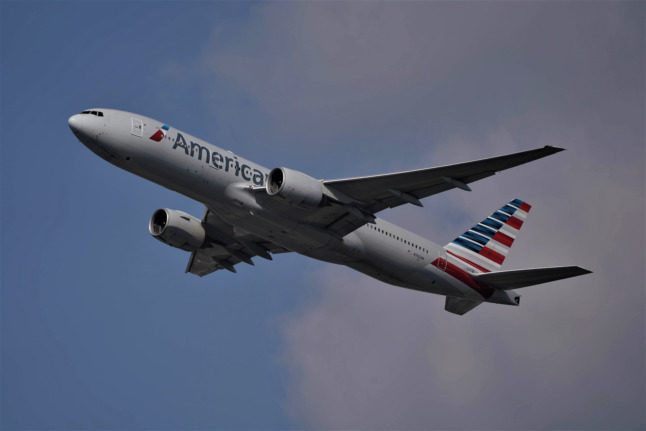The global economic crisis and bad management have put two of Germany’s biggest automotive companies – Opel and Schaeffler – on an Autobahn to destruction.
While Chancellor Angela Merkel appears to be trapped in their headlights, her blue-blooded wunderkind – Economy Minister Karl-Theodor zu Guttenberg – has to decide who gets a taxpayer-funded lifeline and who gets sent down Insolvency River.
Though the two cases might seem similar – one company makes cars and the other parts for cars – there are a number of compelling reasons for bailing out Opel and just as many for ignoring Schaeffler’s pleas for help.
For the uninitiated, Opel is a subsidiary of General Motors Corp., a US carmaker that may or may not survive the next few months. GM’s troubles are threatening to take its German unit down with it and Opel executives, unions and workers want the German government to help.
Merkel’s conservative Christian Democrats are sceptical, saying Opel may no longer be a viable company – but her coalition partners, the centre-left Social Democrats (SPD), for the most part think Berlin should pony up a several billion euros to help make Opel a sustainable and independent German carmaker.
At the risk of sounding like I’ve become an anti-American pinko interested only in saving a bloated Teutonic company from Detroit’s evil clutches, the conservatives have got this one wrong and the SPD is right.
In addition to an apathetic, distant Yankee parent, Opel’s real problems became embarrassingly apparent last week when its managers reportedly handed over a hackneyed, poorly developed rescue plan to German politicians. The best Opel executives could do when the pressure was on and billions in government aid were at stake was to hand over a piecemeal, half-English document full of marketing half-truths and advertisements? That’s leadership? No wonder Opel’s in trouble.
But that’s also the reason the once proud German automaker may be able to make a go of it on its own – despite the apparent lack of brainpower at the top, the company was still able to peddle 1.5 million cars last year. That’s about the size of France’s Renault and slightly smaller than Italy’s Fiat – which are certainly both viable companies. Imagine how Opel could do with some quality management detached from the woes of woeful GM.
And that’s not the only reason Opel deserves taxpayer billions – there are more than 25,000 Opel workers in Germany. If Opel goes under, these people will immediately join the government payroll (read dole), probably until they die. I’d much rather give them some cash now in the hope that they don’t become a permanent drain on my already heavily taxed paycheque. Heck, I might even buy some Opel stock if it ever became publicly traded.
Now, the critics are already whining that government intervention would artificially influence competition, but such complaints have little merit to anyone in the know.
Lower Saxony already owns 20 percent of Opel rival Volkswagen to make sure the state has at least some leverage on the state’s biggest employer. So why can’t Berlin (or Hesse or North Rhine-Westphalia) hold 20 percent of Opel? Ideally, if the company survives, some day the state and federal governments holding shares of Opel can sell at a profit.
It might seem that this logic should also apply to Schaeffler, essentially a ball-bearing maker that is now wrestling with something like €12 billion in debt. It collected the liabilities as part of an ill-advised takeover of Continental, which makes car brakes and tires. But unlike Opel, these businesses themselves don’t actually need the government’s help to survive. Rather the billionaire family Schaeffler needs a helping hand from the state to make sure they remain in control of the companies. In other words, the government should help them clean up a mess of their own making.
But why should Berlin do that?
My ideas for Schaeffler aren’t anything revolutionary or new, they’re actually what’s in the works. The same banks that egged faux-countess Maria-Elisabeth Schaeffler to buy Continental and loaned her all that money are about to pull in the collateral and take control of both Schaeffler and Continental.
Which is exactly what should happen – Schaeffler and her son don’t deserve any help for making such a sophomoric business decision and the banks need to suffer too. If they take over the companies, rather than interest payments they’ll now have to wait for markets to recover to recoup their costs – proving that they never should have supported the deal in the first place.
And once the ownership of Continental and Schaeffler is settled, these two mostly healthy companies can focus on what they should be focusing on – adjusting to the new economic situation and, hopefully, negotiating car parts contracts with a newly independent Opel.



 Please whitelist us to continue reading.
Please whitelist us to continue reading.